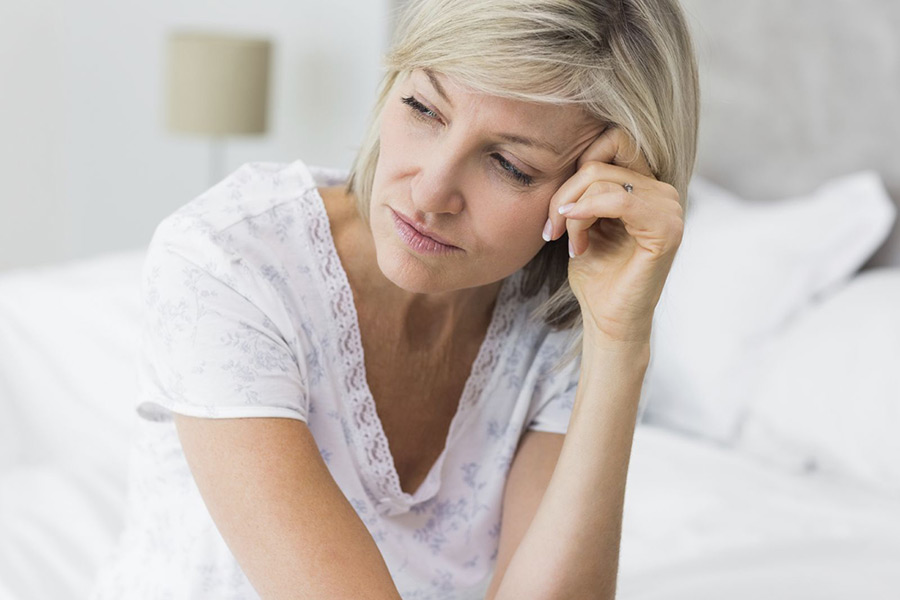Menopause often starts around age 60 and symptoms could continue for an average of 4–5 years inconveniently affecting every facet of life and impacting your overall wellbeing.

Though the treatments are far from perfect they symptoms can be eased to some extent. Hormone replacement therapy (HRT) has side effects and can increase the risk of developing breast cancer but HRT is effective for many people. Nonhormonal therapies often come with a list of unpleasant side effects too, including sleep disturbance, dizziness, nausea, and fatigue.
The most recent study, which researchers from the University of Copenhagen, Denmark, and the University of Southern Denmark, Odense led, compared the power of acupuncture against the symptoms of menopause. The research suggests that acupuncture might bring relief for some women. The study was published Feb. 19, 2019 in the journal BMJ Open.
“Acupuncture for menopausal symptoms is a realistic option for women who cannot or do not wish to use [hormone therapy]” to ease hot flashes, sleep issues or mood swings, said a team led by KammaSundgaardLund, from the department of public health at the University of Copenhagen.
The use of acupuncture for menopausal issues isn’t new according to an expert in the United States.
“As an ob/gyn, I have referred many patients for acupuncture for various different pain syndromes,” said Dr. Adi Davidov, interim chair of obstetrics and gynecology at Staten Island University Hospital in New York City.
The Danish study “clearly demonstrates that menopausal symptoms can also be successfully treated with acupuncture,” he said. “This is very exciting news as hormonal treatment for menopausal symptoms have fallen out of favor and other medical treatments are marginally effective.”
In the study, Lund’s team tracked outcomes for 70 menopausal women in Denmark who underwent either five weeks of standardized Western medical acupuncture or no acupuncture. The acupuncture was performed by family doctors in nine different practices who had been trained in acupuncture and had been performing it for an average of 14 years. Each weekly session lasted 15 minutes.
After just 3 weeks, the participants in the acupuncture group noted a decrease in hot flashes.
At the 6-week mark, 80 percent of the women in the acupuncture group believed that the sessions had helped them.
The acupuncture did not only reduce hot flashes. Those in the experimental group also experienced significant drops in the severity or frequency of sweating (including night sweats), sleep disturbances, emotional symptoms, and skin and hair problems.
Compared with the control group, women who had acupuncture self-reported significant reductions in how bothersome symptoms were from baseline across the following menopause-related symptoms:
- Hot flushes: -1.6 (95% CI -2.3 to -0.8)
- Day-and-night sweats: -1.2 (95% CI -2.0 to -0.4)
- General sweating: -0.9 (95% CI -1.6 to -0.2)
- Menopausal-specific sleeping problems: -1.8 (95% CI -2.7 to -1.0)
- Physical symptoms: -1.7 (95% CI -3.0 to -0.4)
- Skin and hair symptoms: -1.5 (95% CI -2.5 to -0.6)
These benefits weren’t isolated to physical symptoms of menopause either — the biggest change from baseline tied to acupuncture use was reported in emotional symptoms (-3.4, 95% CI -5.3 to -1.4).
The control group received no treatment, as the researchers explained: “no sufficient acupuncture placebo comparator exists, which is a major limitation in acupuncture studies.” Another limitation to the analysis, the authors pointed out, was the inability to blind the intervention group to the acupuncture.
Lund’s team stressed that the short length of the study means that a placebo effect can’t be ruled out in the acupuncture treatment group. And “we believe this acupuncture intervention is most relevant to women who experience moderate-to-severe menopausal symptoms,” they added. That said, for women who have decided not to use standard treatments, acupuncture — whether its benefits come via the placebo effect or not — might be a useful option. There is little danger of serious adverse events and, if someone perceives that their symptoms have improved after acupuncture, that is surely the goal of any intervention.